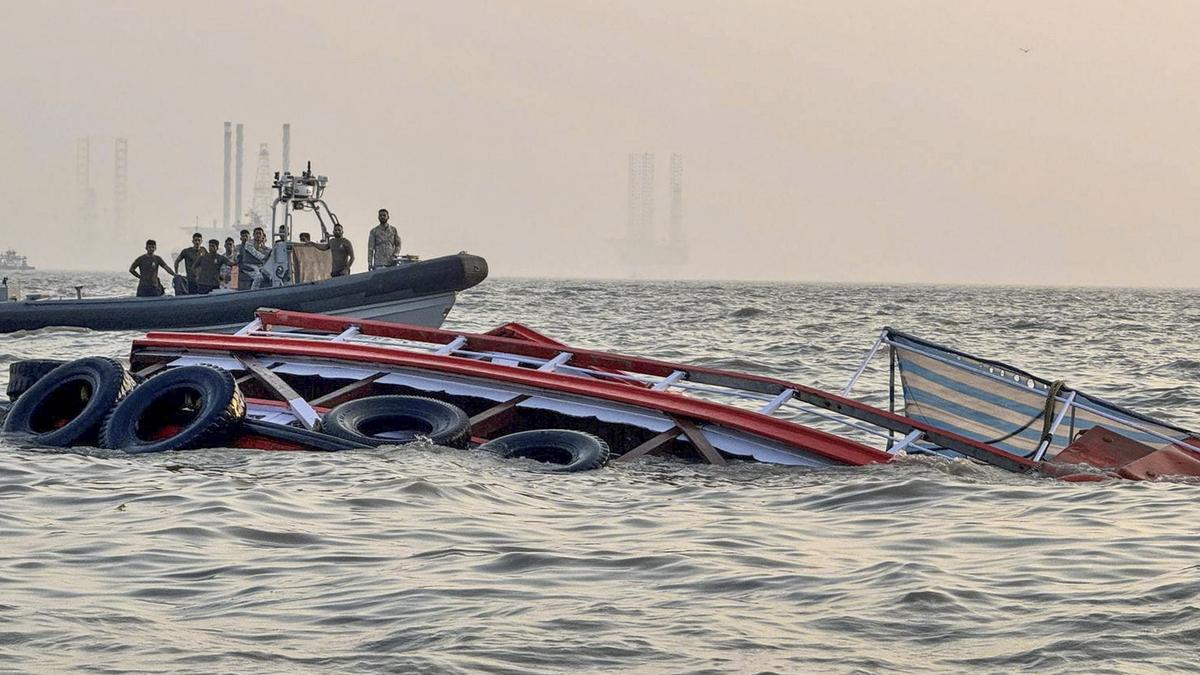
In Mumbai, a joyride that turned fatal Premium
The Hindu
Tragic ferry accident near Mumbai leaves 15 dead, survivors recount harrowing experience, raising questions about safety measures.
It was at noon on December 18 that Tanvi Wakchaure saw her father, Deepchand, for the last time. Deepchand, a 45-year-old plumber, had dropped Tanvi, 17, at college in Govandi, an eastern suburb of Mumbai. He did not tell her where he was headed to next.
When he did not return by night, Deepchand’s family, who live in the same area, started getting worried. “We began calling his friends one by one,” says Tanvi.
They learned that Deepchand, an avid explorer, had boarded a ferry to Elephanta Island, located 9 nautical miles off the coast of Mumbai from the Gateway of India. Every day, about 3,000 people visit the UNESCO world heritage site, says Sardar J. Mahadkar, president of Jal Vahatuk Sahakari Santha Maryadit, an organisation representing ferry owners. The island is home to the rock-cut Elephanta Caves, which were constructed in the mid-5th and 6th centuries AD and reflect Hindu and Buddhist iconography.
“He liked to explore the city,” says Deepchand’s friend, Chandrakant Hevale. “That happened to be one of those days. When we found out that he had boarded the ferry and there had been an accident in the Arabian Sea, we rushed to the Colaba police station in the early hours of December 19.” The Colaba police station is located about 600 metres from the Gateway of India.
The police asked the family and friends to go to the state-owned J.J. Hospital. On rushing to the hospital, the family found Deepchand’s body.
“Just a day earlier, he and my mother had celebrated their wedding anniversary,” remembers a distraught Tanvi.
At around 3.30 p.m. on December 18, an Indian Navy speedboat had rammed into the passenger ferry not far from Elephanta Island. The ferry capsized. Thirteen people, including Deepchand, died. Two remained missing. On December 19 and 21, their bodies were also recovered. The death toll increased to 15.











